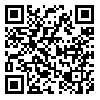This study is aimed to investigate the spatial variation of soil macronutrients such as phosphorus, potassium and organic matter using different methods of Geostatistics and Geostatistical method combined with Fuzzy logic to estimate the values of this element to provide a spatial distribution map for the proper distribution of fertilizer in the plain of Uremia. Spatial variations in soil nutrients are natural but knowing these changes for careful planning and management particularly in the agricultural lands is simply inevitable. This information is necessary to increase the profitability and sustainable agricultural management. Therefore, to estimate the changes in the elements of places not sampled, the Kriging, Fuzzy Kriging, Cokriging and Inverse Distance Weighting methods have been used in GS +. In this study, Matlab 9.1 software was used to fuzzification of the data and GIS was used for the final mapping. The parameters MAE, MBE and RMSE were used to compare these methods. The results showed that the combined method of Fuzzy Geostatistic with the mean absolute error values for the elements phosphorus, potassium and organic matter i.e. 0.17, 0.18 and 0.18, respectively, is recognized as the preferred method based on which zoning maps have been prepared for P, K and OC in GIS.
Received: 2016/09/5 | Accepted: 2016/09/5 | Published: 2016/09/5
| Rights and permissions | |
 | This work is licensed under a Creative Commons Attribution-NonCommercial 4.0 International License. |




